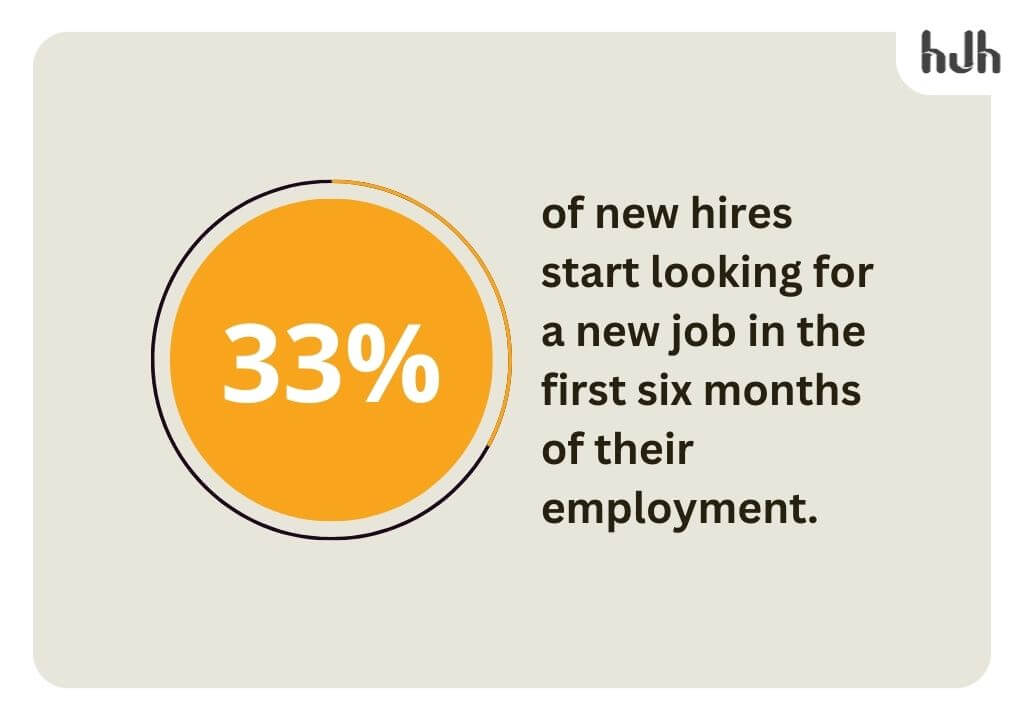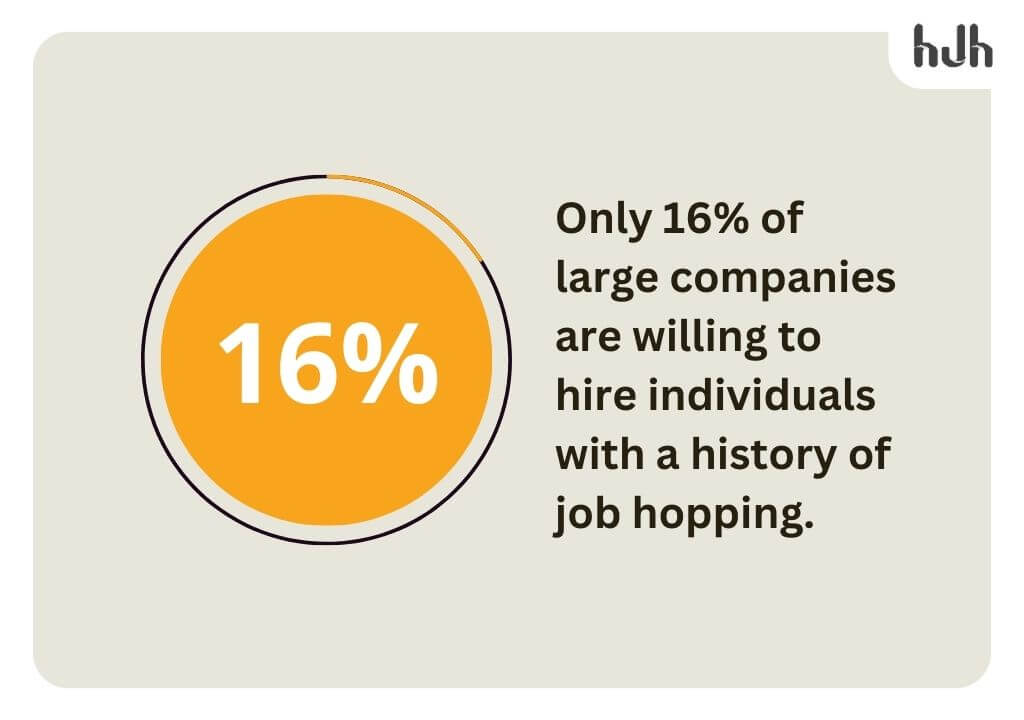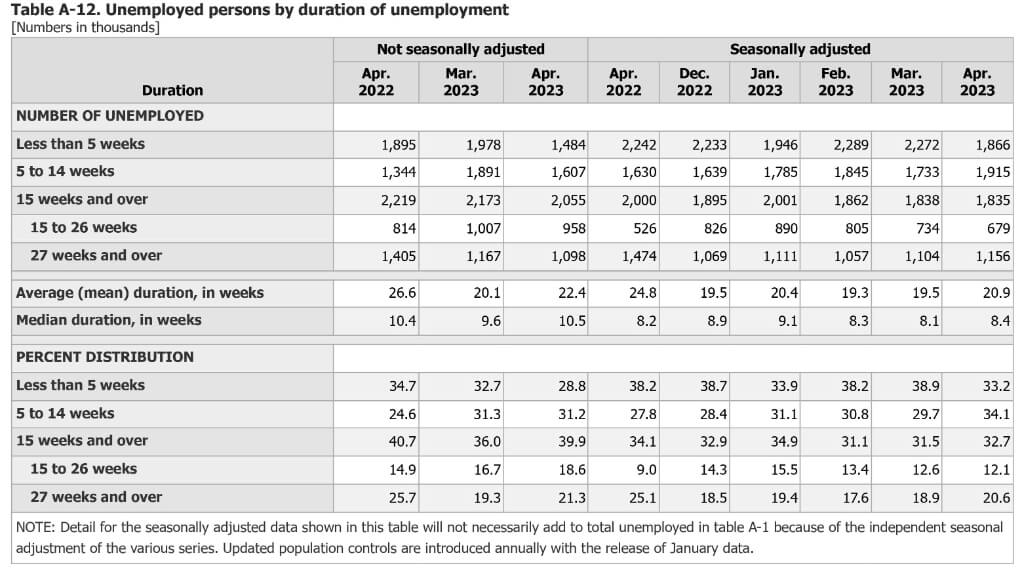Many people ask themselves the question how soon is too soon to leave a job when they start a new job but quickly realize that it is not what they expected. While the temptation to quit right away is strong, you should consider certain things before making such a significant decision.
In this article, we will discuss some essential factors you need to consider before quitting a job and when it may be appropriate to move on to a new opportunity. So, read on to learn more about how long to give a new job before quitting to make the right decision for your career.
Table of Contents:
- How Long Should You Give a New Job?
- Things to Consider Before Leaving Your New Job
- Tips on How to Quit Your New Job
How Long Should You Give a New Job?

As you can see, leaving a new job is not uncommon. Though, quitting a job you just started may raise questions for future employers about your commitment and reliability. There are situations where it is necessary to quit a job as soon as possible.
For instance, when the job is putting your safety or well-being at risk. That is, if you are subjected to harassment, discrimination, or any form of abuse in the workplace, you should prioritize your safety and leave the job right away. Additionally, if the company is involved in any illegal or unethical practices, it is essential to report them and quit as soon as possible to protect yourself and your integrity.
In such scenarios, “How soon can you quit a job?” shouldn’t be a question, as your safety and well-being come first.
Things to Consider Before Leaving Your New Job
Not all situations are as serious as those mentioned in the previous section. There are various reasons why you may want to quit your new job, such as poor management, unrealistic expectations, or a toxic work environment. However, it is important to take a step back and evaluate the situation before making any hasty decisions.
Here are the things you should consider before quitting your new job.
1) How Long You Stay Matters
Staying in a job for a short period of time or frequently changing jobs is a red flag to potential employers. They may hesitate to hire you in the future, as they question your ability to commit to a job. Keep in mind that job-hopping can have negative consequences for your career.

Another thing to consider is how leaving a job too soon affects your professional network. Your colleagues, supervisors, and even clients become valuable references and connections in your industry. Maintaining positive relationships create a lasting impression, even when you don’t plan to stay on the job long-term.
Furthermore, leaving a job too quickly impacts your eligibility for unemployment benefits as well.
2) Identify the Problem
First and foremost, take the time to assess why you are unhappy with your job.
Are you experiencing specific issues, such as a difficult boss or a lack of growth opportunities? Or are you simply feeling unfulfilled and uninspired? Is the work environment, job duties, or company culture making you unhappy?
By identifying the root cause of your dissatisfaction, you can determine whether it is something that can be resolved or whether it’s time to move on. For example, in case you’re having trouble getting along with your boss or when the work environment is not ideal, you can ask to work remotely.
3) Give it Time
Starting a new job can be overwhelming, and it may take some time to adjust to your new role. Therefore, give yourself time to settle in and adapt to your new work environment before making any decisions about leaving.
So, how long to give a new job a chance? When you go through the internet, you will find recommendations ranging from 6 months to 6 years. However, INC recommends staying in a new job for at least 1 to 2 years before quitting as perfect.
That is because, it gives enough time to get a sense of the job duties, company culture, and management style. Also, it allows for enough time to develop new skills, build relationships with coworkers, and make a positive impact in the workplace.
4) Think About Your Personal and Professional Goals
Evaluate your current job by considering your career goals and whether your job provides opportunities for professional development. Additionally, assess the impact of your job on your work-life balance and mental health. If your job is not helping you advance in your career or is negatively affecting your personal life, it may not be worth sticking around.
5) Consider Your Financial Situation
Quitting a job have a significant impact on your finances. Thus, it is crucial to consider your financial situation before making any decision.
Ask yourself how long you can go without a paycheck. Think about expenses like health insurance, you need to cover on your own. Also, you should think about how long you can manage without a job since there is no assurance that you will find your next opportunity right away.

As you can gather from the above image, finding a new job can take anywhere from a few weeks to several months. Thus, it is important to have a financial safety net in place to cover your expenses while you search for your next opportunity.
In some cases, it may be better to start looking for a new job before quitting your current one. So, you are not left without income for an extended period of time.
6) Seek Support
When you are unhappy in your new job, it is always a good idea to speak with your manager. They may be able to address the issues and provide you with the support you need to feel more comfortable in your role.
Additionally, you can seek support from colleagues or mentors in your field as well. They can offer advice or guidance on how to navigate challenges and make the most of your current role. Also, consider reaching out to a career coach or counselor for professional support in assessing your career goals and determining the best path forward.
7) Have a Plan
In case you do decide to leave your job, it is essential to have a plan in place. Make sure you have a new job lined up, or you have enough savings to sustain yourself until you find a new job.
Further, be prepared to explain why you are leaving your job. When interviewing for a new position, potential employers will ask you why you left your previous job.
So, you should have a clear and concise answer that highlights your reasons for leaving. But remember to not speak negatively about your previous employer.
For additional tips on how to quit a job you just started, go through the next section.
Recommended: 10 Undeniable Signs That You Need a New Job
Tips on How to Quit Your New Job
- Be honest and professional: While discussing your decision to leave with your manager or HR department, be honest and professional about your reasons for leaving. Avoid criticizing the company or your colleagues, and focus on your own personal and professional goals.
- Give notice: When you quit without giving your employer sufficient notice or without having a valid reason, it could damage your reputation and make it harder to find future employment opportunities. Therefore, it is best to give your employer notice before leaving, even when it hasn’t been too long since you started the work. Two weeks’ notice is standard, but if you can give more, it will be appreciated.
- Keep networking: Just because you are leaving your job doesn’t mean you should sever ties with your former employer or colleagues. Continue to network and build relationships, as they may be valuable contacts for future job opportunities.
- Stay focused on your goals: Leaving a job you just started can be stressful and challenging, but it is important to stay positive and focused on your goals. Use the experience to learn and grow, and don’t let it discourage you from pursuing your career aspirations.
Recommended: 15 High-Demand Jobs in the Next Ten Years
To Sum it Up!
Leaving a job is a big decision that you should not take lightly. While there is no one-size-fits-all answer to how soon is too soon to leave a job, it is important to take time to evaluate your situation and consider the potential long-term effects on your career. Carefully weigh the pros and cons before deciding to quit your new job.
In case you want to explore new opportunities, visit HomeJobsHub. This job portal has a wide variety of jobs from multiple fields at its disposal. Simply, sign up and their AI will notify you whenever a new job matching your requirements and skills is posted.
Good Luck!




